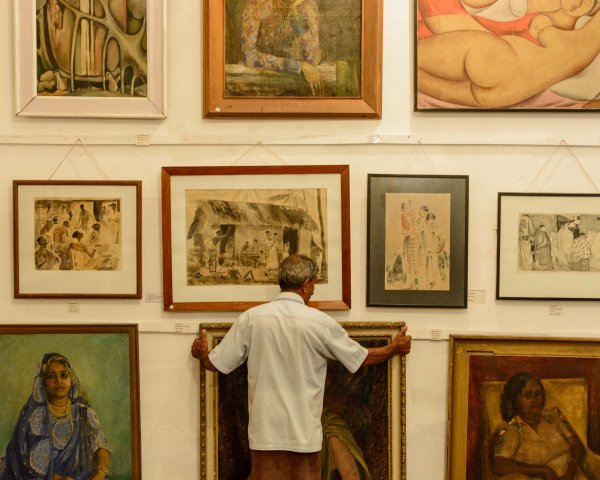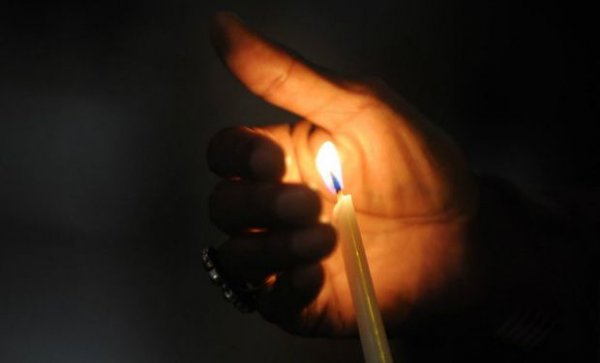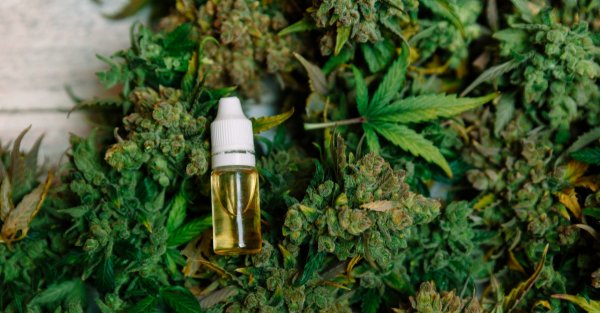
The COVID-19 pandemic is an evolving situation and as such information relating to it is rapidly changing. We encourage you to always check our latest articles, the updates on our live blog or the reportage on our Twitter feed.
We’re all very cued in on the news now: there have thus far been eleven cases of COVID-19 in Sri Lanka, the very first of which was successfully managed, the patient—a 40-year-old female Chinese tourist—returning to her country on February 19. The other ten are currently being monitored at the National Institute of Infectious Diseases (IDH).
These numbers are bound to change—and Roar promises to keep you updated. Right here, with this guide, and through our LIVE blog, that has been gathering and compiling COVID-related information since December 31.
The sheer volume of information and misinformation spreading through mainstream and social media channels has caused people to panic, many queuing at supermarkets to stock up on supplies for a foreseeable future in which they will either be in self-imposed quarantine on lockdown.
We created this guide with the specific purpose of ensuring everyone is informed of the most basic things you need to do to stay safe.
At A Glance,
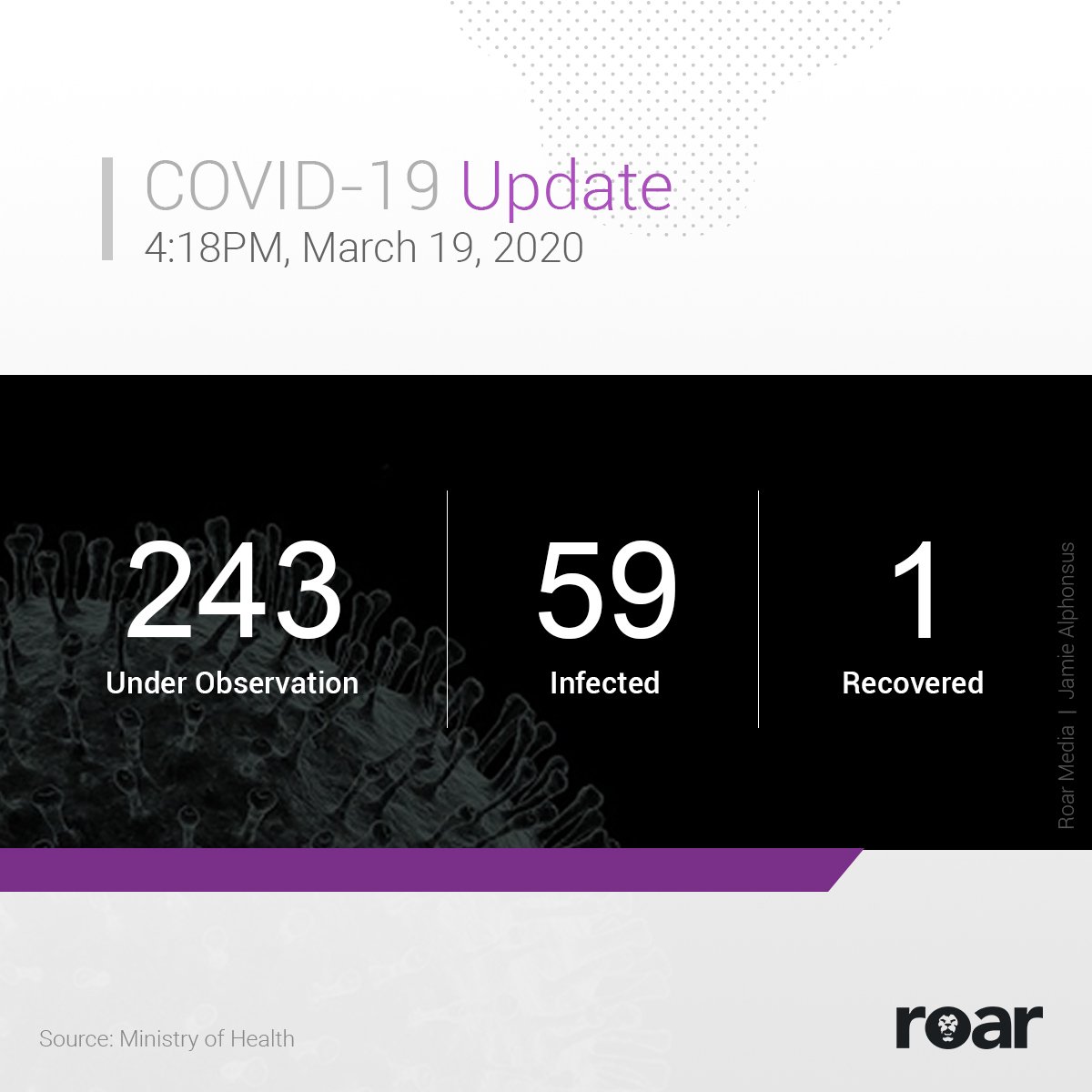
The Govt. Is Trying To Contain It
The state, the military and health authorities are working together to contain COVID-19 at the entry point and isolate clusters.
The first patient in Sri Lanka was a Chinese tourist. She was isolated and treated at the IDH and left the country having successfully recovered on Feb 19.
‘Patient Zero’ was an Italian tourist who has now left the country.
The second patient (first Sri Lankan patient) was a 51-year old tour guide, who had later come into contact with 60 people. All sixty are currently being observed at home. Five of the 60 who displayed symptoms of the flu were admitted to the IDH for further investigation.
The second tour guide came into contact with 25 people. Eight of these (all family members) displaying symptoms of the flu were admitted to the IDH and are under investigations.
On Saturday (March 14), in quick succession, the government confirmed the next five cases (bringing the total to 10) — most were returnees from Italy who were already in quarantine centres. One of the patients is the 17-year-old female relative of an existing patient.
It is clear the government is working hard to isolate and contain the spread of the virus.
As an additional precaution,
the government has decided to close many establishments.
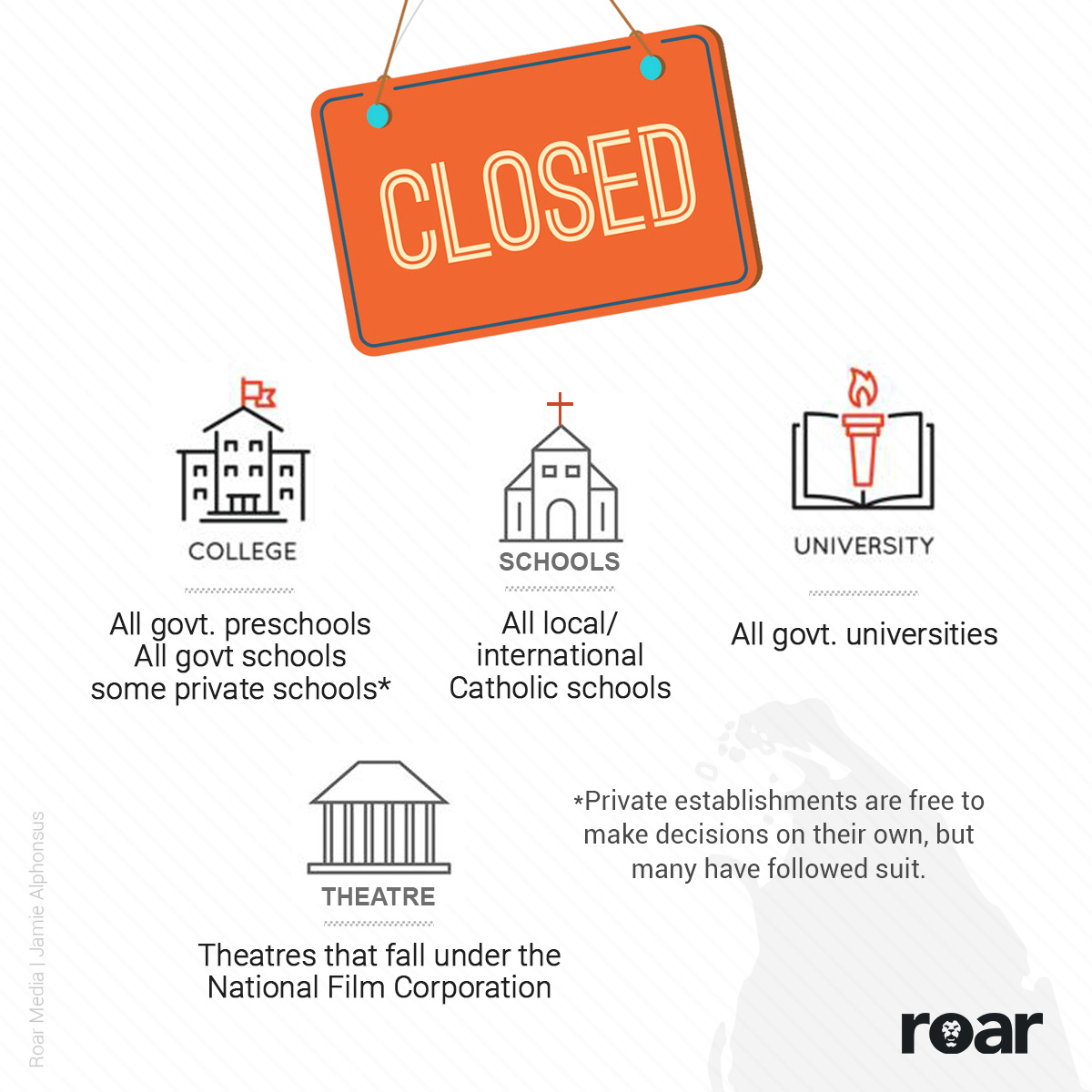
All private and public gatherings have also been prohibited for two weeks, starting on Sunday (March 15).
Because COVID-19 originated in Wuhan, China and spread from there, the points of entry into the country are of utmost importance.
In an effort to combat this,
the government has:
-
Stopped incoming flights from Bahrain, France, Spain, Germany, Switzerland, Denmark, the Netherlands, Sweden and Austria from March 15 at 2359hrs local time and until March 29 at 2400hrs local time
Aside from this,
-
Visa-on-arrival has been suspended for all countries
-
All passengers from Iran, Italy, South Korea will be sent to mandatory quarantine for 14 days and only released thereafter.
-
Everyone else has been asked to adhere to a self-imposed quarantine by practising social isolation for two weeks at least.
All incoming travellers—whether local or foreign—will be subjected to the following precautionary treatment:
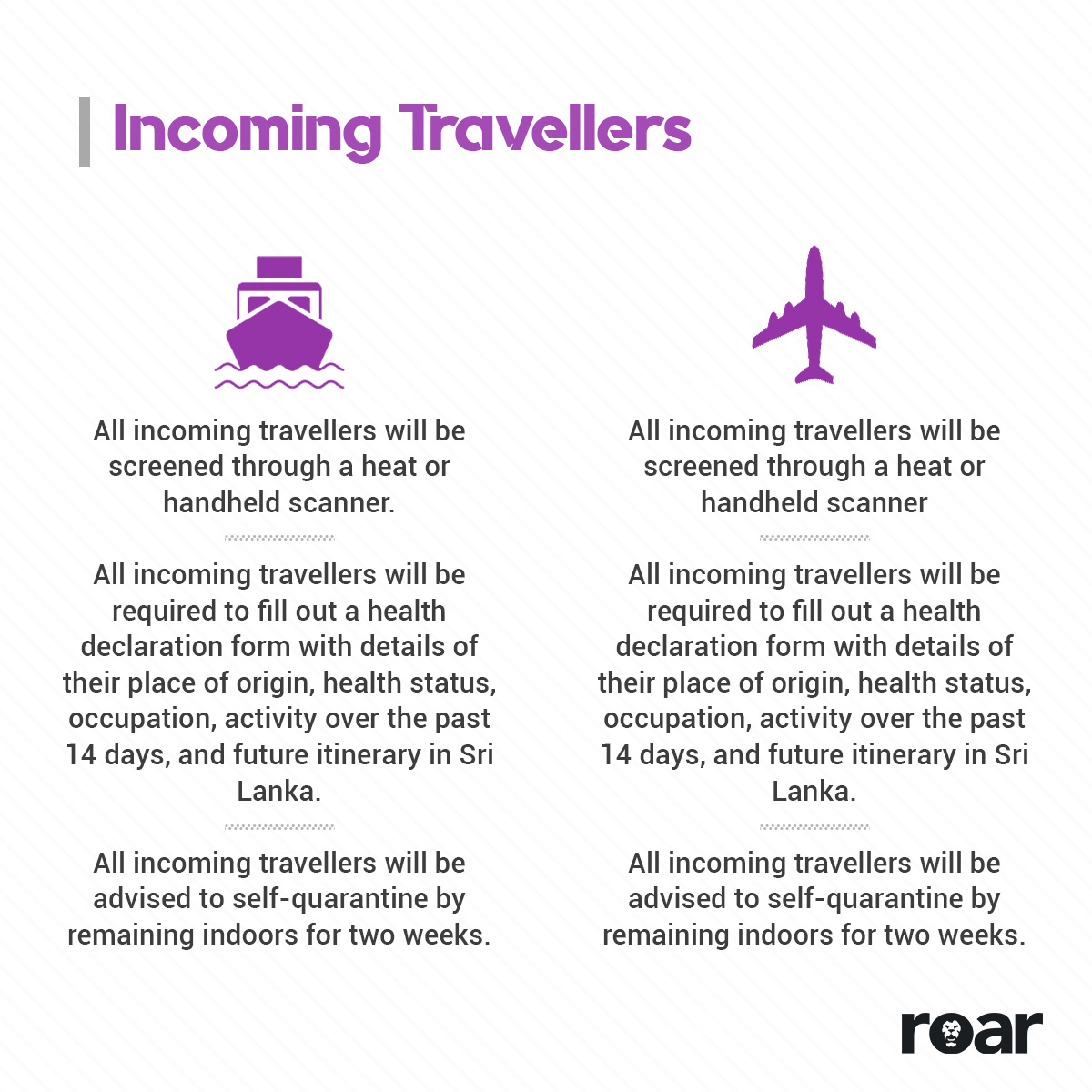
IF, at the point of entry, you show the following symptoms.
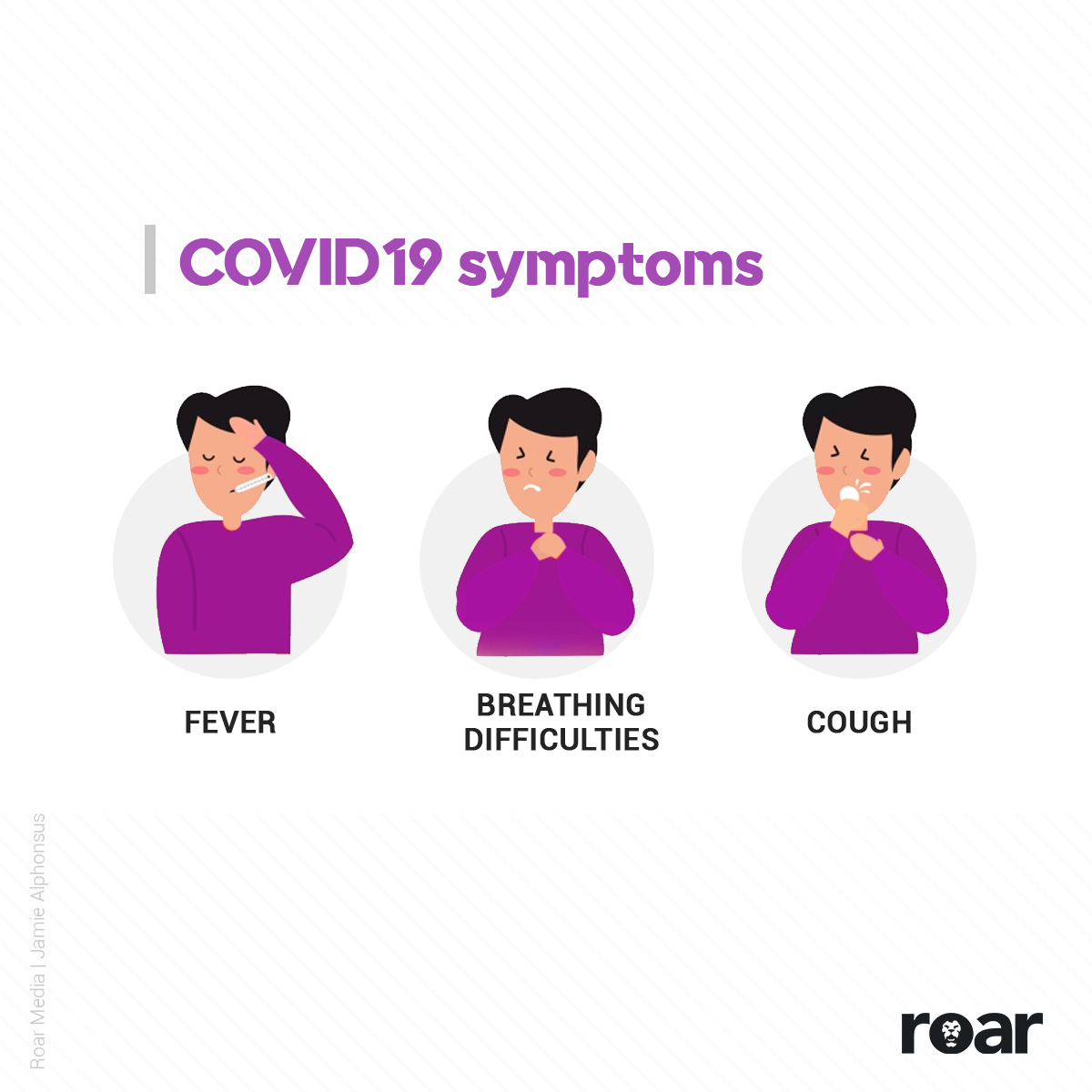
You will be:
-
Isolated at the port of entry and examined by officials on 24-hour duty.
-
Sent to the nearest designated hospital in an ambulance.
IF YOU have just returned from abroad or IF you have come into close physical contact with someone who has just returned from abroad or IF you have been to a public gathering and are thereafter displaying COVID 19 symptoms – you can go to your own general practitioner who will refer you to the nearest designated hospital, or go to the nearest designated hospital and have yourself checked.
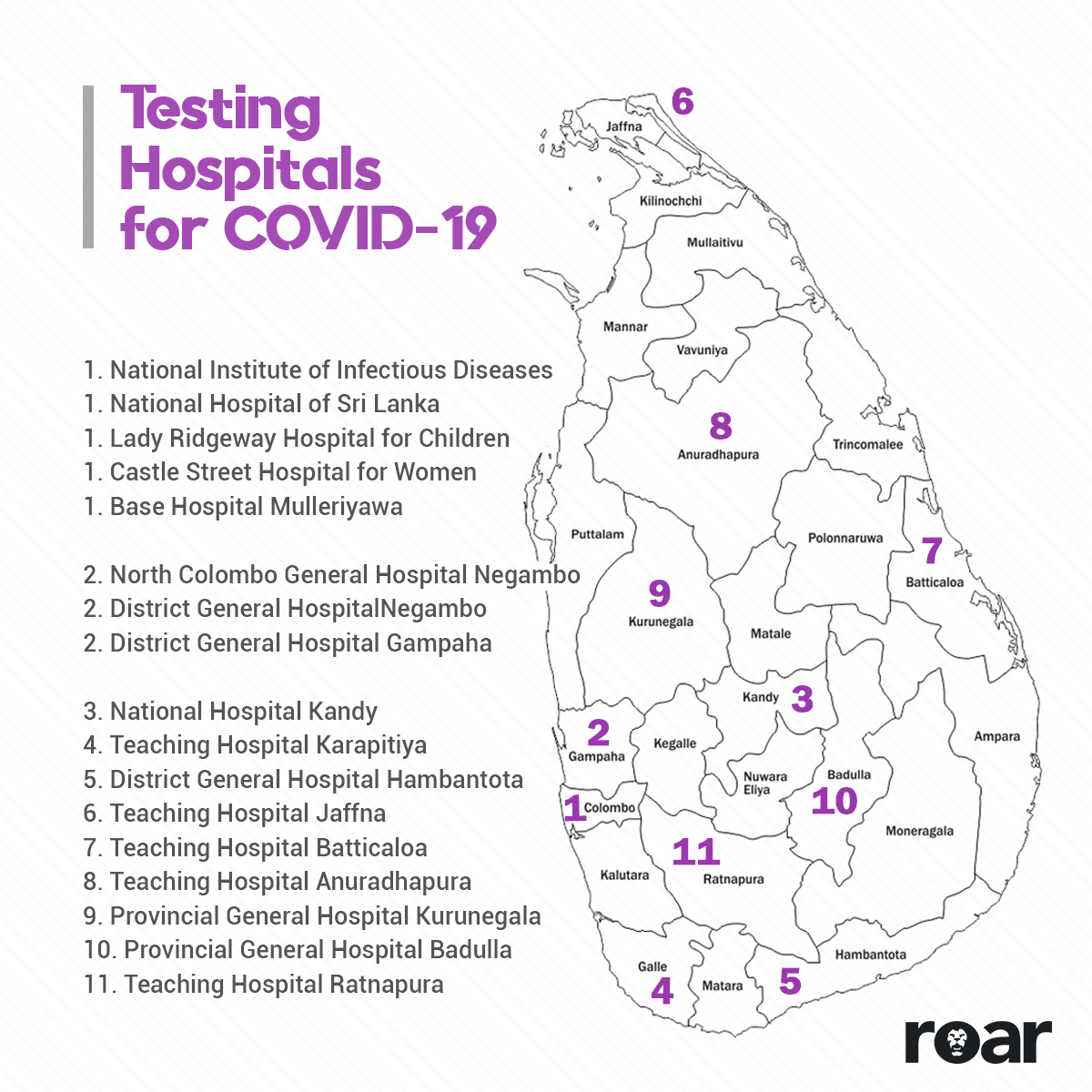
Please note, private hospitals have not been permitted to conduct testing for COVID19 – so rather than waste big bucks trying, it is best to go to the nearest state hospital.
What Does ‘Quarantine’ Mean?
Quarantine is implemented through the Quarantine and Prevention of Diseases Ordinance of 1897 and International Health Regulations (IHR-2005). 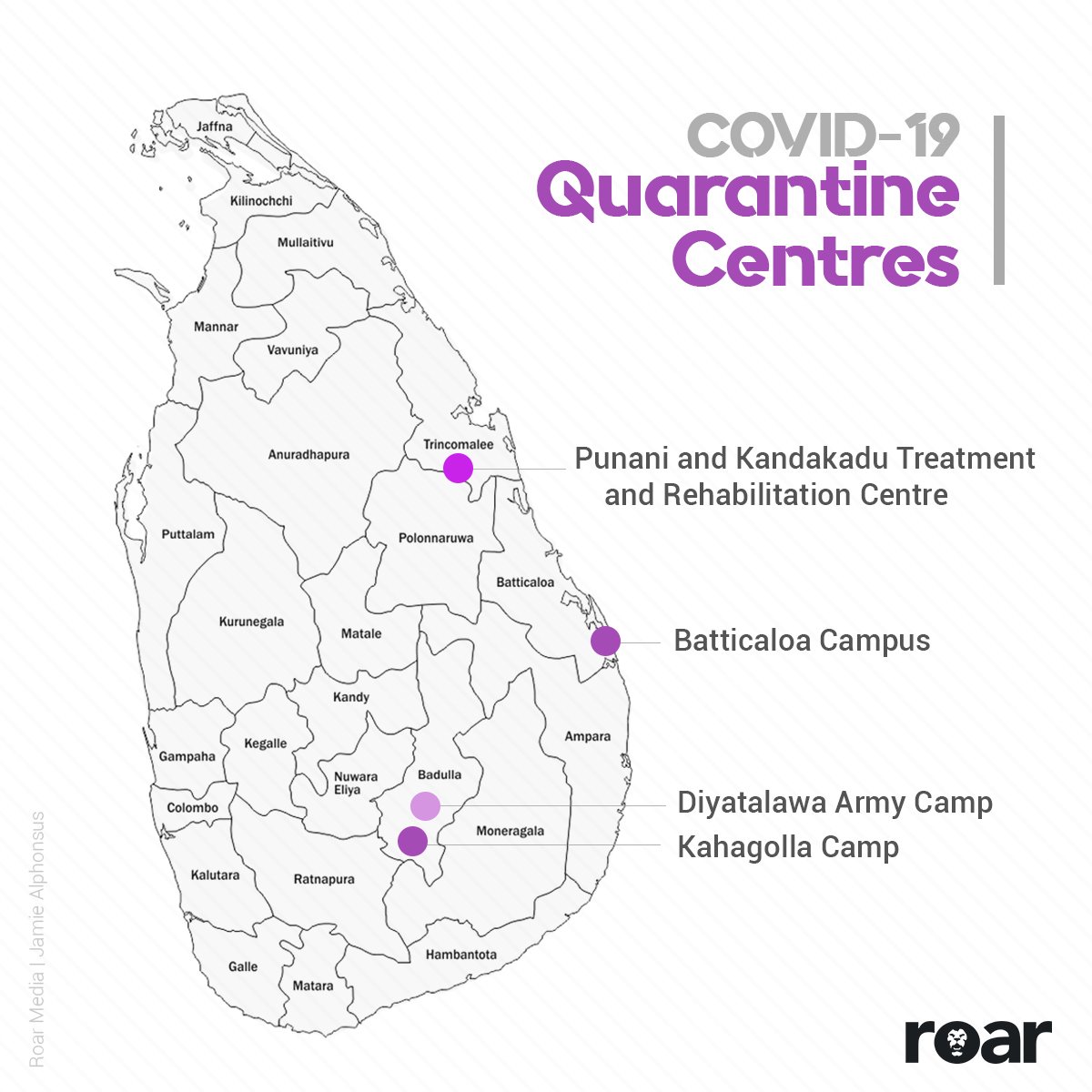
“These locations were chosen mainly due to its space to accommodate a large number of people,” explained Dr. Paba Palihawadana, Chief Epidemiologist of the Ministry of Health, Some reports indicate that these centres were also selected for their location in slightly remote and less populated areas.
The camps can typically hold about 2000-2500 persons, are medically equipped and manned by 5-6 medical teams with Personal Protective Equipment (PPE), have bunk beds, daily meals, and refreshments, Wi-Fi facilities, laundry and entertainment facilities —all provided for by the state.
It’s Also Worth Knowing That
-
Foreign travellers have been told they do not have the ‘social or legitimate right’ to refuse the quarantine process.
-
Any local non-compliance will result in imprisonment up to six months and could be fined between Rs. 2, 000 to 10, 000 if found guilty.
Who Is Coordinating The Efforts?
A 22-member National Action Committee including Health Minister Pavithra Wanniarachchi, Western Province Governor Dr. Seetha Arambepola, Additional Secretary to the President Admiral (Rtd.) Jayanath Colombage, Health Secretary Bhadrani Jayawardane, Director-General of Health Services Dr. Anil Jasinghe, Specialist Dr. Anuruddha Padeniya, Additional Secretaries Dr. Sunil De Alwis and Lakshmi Somatunge, Dr. Nihal Jayatilake, SPC Chairman Dr. Prasanna Gunasena, Physician Dr.Ananda Wijewickrama, Brigadier Dr. Krishantha Fernando, Epidemiology Unit Director Dr. Sudath Samaraweera, Dr. Paba Palihawadana, Medical Research Institute Director Dr. Jayaruwan Bandara, Civil Aviation Authority Chairman Major General (Rtd.) G.A.Chandrasiri and the Immigration a Emigration Controller and six other members was set up on January 27 to direct efforts at containing COVID19.
Additionally, a new central office will be established on Monday (March 16) in Rajagiriya to handle all COVID related issues.
How Does One ‘Self-Quarantine’?
-
All inbound travellers are required to self-quarantine for two weeks.
-
Public Health Officers will visit throughout, and at the end of the 14-day period, conduct a final assessment to clear the person of COVID-19
D.r Samitha Ginige, Epidemiology Unit, Ministry of Health told Roar Media, “The public health staff of the Health Ministry carries out daily health check-ups on those who are in self -quarantine in order to ensure that they are strictly following the correct procedures. Their health is monitored to see if they have developed symptoms of the infection and if they have, they will be immediately taken to the quarantine centres.”
The Main Thing Is Not To Panic
There is no doubt, the virality and reach of COVID19 is cause for concern. But panicking will not help anyone. There is a national task-force and a national plan to contain the virus. What you need to do is to:
-
Not fall victim to fake news by ensuring you consume your news from trusted sources
-
Work to educated and reassure those around you with the correct information
-
Practice hand hygiene, respiratory protection, social isolation
For good measure, here are the ways in which you can contact the government for more information:

Health Promotion Bureau Facebook page
Department of Government Information Facebook page
Department of Government Information YouTube channel
Also, don’t forget to protect yourself from the virus in the three most basic ways:
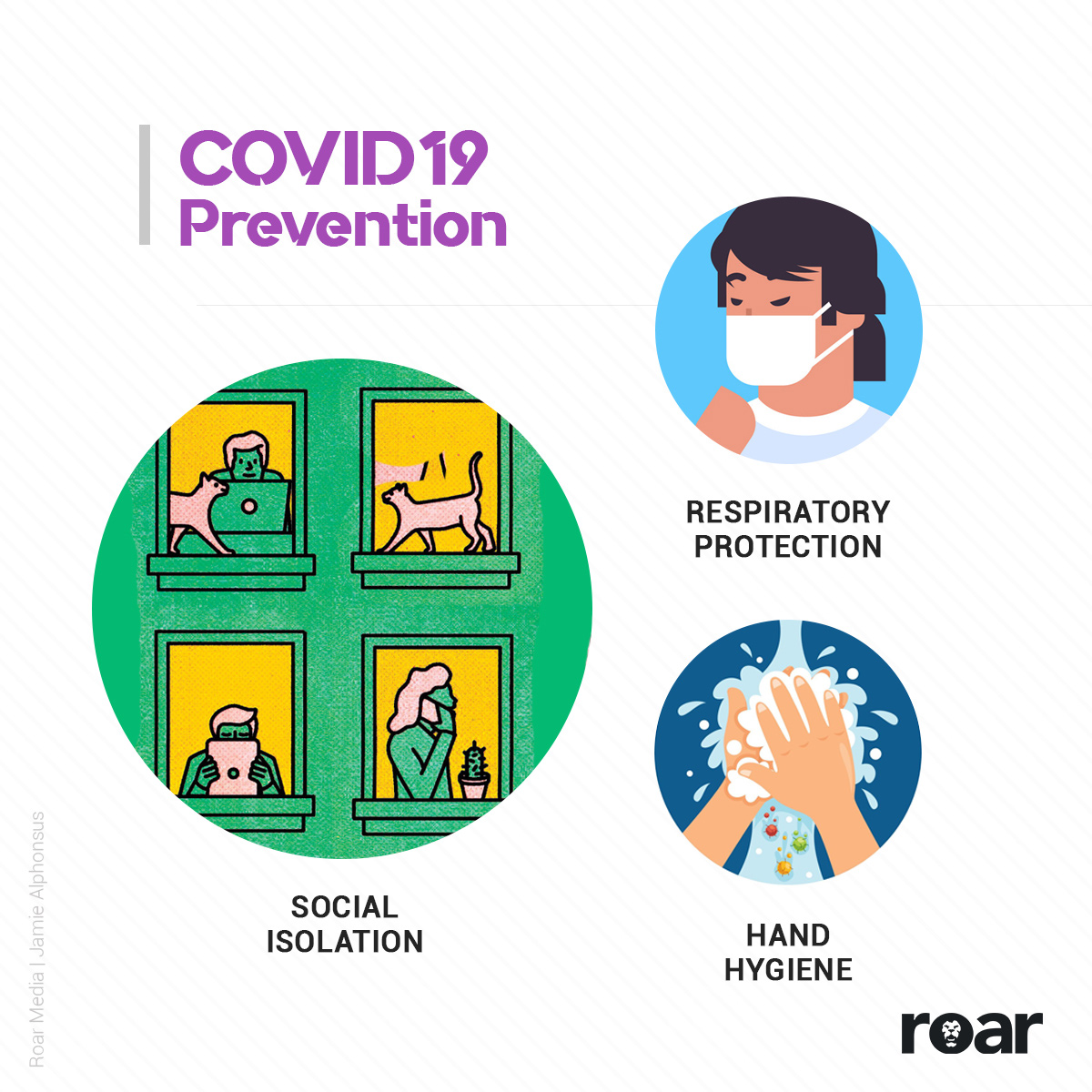


.jpg?w=600)

